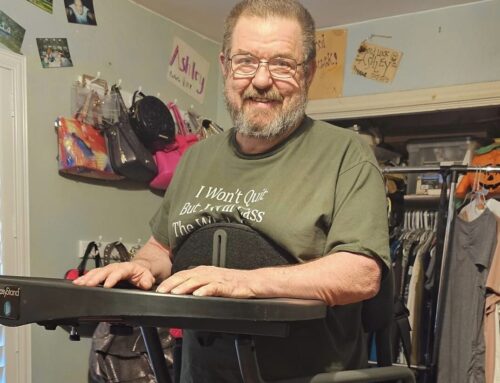A title like “Vampire Lesbians of Sodom” conjures up images of a certain type of play, a certain type of theater and a certain type of clientele.
However, anyone who stereotypes the Pegasus Theatre as too far-out because of its titles could be missing a chance to enjoy live theater that is not nearly as outrageous as it sounds, says founder and artistic director Kurt Kleinmann.
Pegasus has been presenting new and original comedies to Dallas patrons since Kleinmann and a partner opened the theater in an old industrial building in the Deep Ellum area in 1985. Some of the plays previously may have been performed in New York City, Chicago or elsewhere but not in the Dallas area, Kleinmann says.
“A Pegasus comedy is something that is satirical and has a contemporary feel to it,” he says. “It may be somewhat campy, it may be a spoof of old movies, or it may be an examination of current relationships.”
Pegasus is probably best known for what Kleinmann calls the “Black and White Plays,” a type of play pioneered by the theater in 1986 with “A Trifle Dead,” a script written by Kleinmann.
The plays are staged in a style that emulates old black-and-white movies, and everything on the set – from the scenery to the makeup that covers the actors’ skin – is done in shades of black, white and gray.
“In reality, people’s skin is really not black or white,” Kleinmann says. “We had to experiment with color mixtures until we developed something that actually looks like what you see in a black-and-white photo.”
The ambiance at the Pegasus, like many of its play titles, would be considered off-center by theatergoers whose only experience has been with big-name productions and plush theaters. There are no shimmering crystal chandeliers or wine and coffee bars in the lobby, no valet parking, no fancy upholstery and no dress code.
Instead, the Pegasus is housed in a nondescript industrial space in a one-story brick building on the 3900 block of Main Street near Haskell.
By day, conversations inside the theater are punctuated by the rhythmic pounding and clanging of metal as employees of Paris Ornamental Iron – the next-door neighbor – hammer out a living.
But by night, the neighborhood is blessedly quiet, Kleinmann says. Patrons sit on theater seats upholstered in black; overhead are the building’s exposed metal beams. The stage is small but adequate, and the lobby is sparsely furnished with sofas and chairs that sometimes double as stage props. Some patrons say it is reminiscent of an off-off-Broadway playhouse.
When Kleinmann returned to Dallas from New York City in 1985 to pursue his dream of operating a theater, he wanted to create a non-threatening place where patrons could feel equally at home whether they are wearing T-shirts and shorts or diamonds and silk. He also wanted a stage where actors, directors and audience could have a good time together.
“I don’t believe that theater has to always have an earth-shattering message,” Kleinmann says. “I think that every time we can get a person to come in the door and see a play instead of watching television, we’ve scored a victory.
“I think that people don’t always see the value of the arts, and we’re in great danger of becoming a “USA Today,” tabloid-type of society if we aren’t careful.”
“I just think there’s something that happens – that energy bridge between actors and audience – that is special in live theater.”
Kleinmann, who began his career as an actor, says he believes he has found his niche in management and artistic direction. However, he also is a prolific playwright and has continued to write and stage at least one of his own plays each year.
More recently, he says, he also has returned to acting in a few Pegasus shows each year, going through auditions just like any other actor.
“I came to the world of theater as an actor, and I wanted to enjoy that again,” he says.





